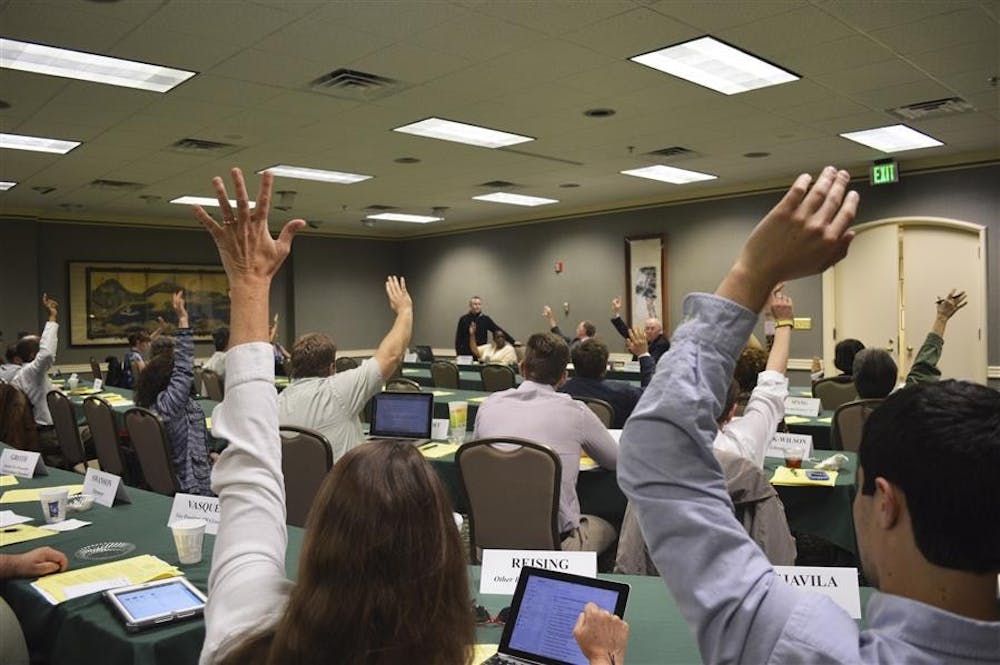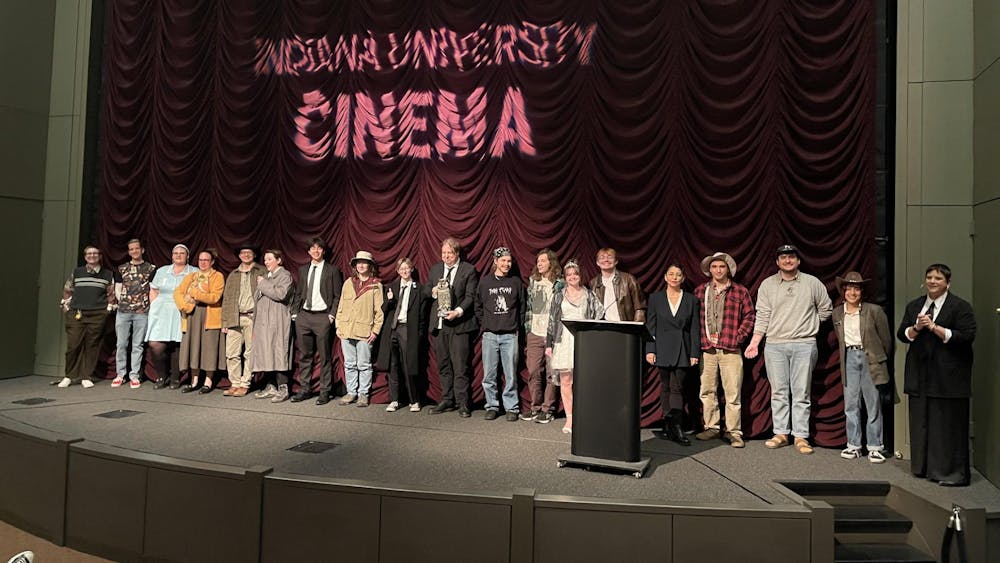The Arts and Humanities Council aims to publicize current cultural opportunities and to make the liberal arts an essential part of all schools, council director Edward Comentale told faculty members at the Bloomington Faculty Council meeting Tuesday.
The council, which has been in effect for nine months, works with non-scholarly communities and departmental organizations to promote on-campus cultural activities and curriculum reform.
“There has been a lot of talk about the crisis in the arts and humanities, but I see these disciplines as victims of their own successes,” said Comentale, who is also a professor in IU’s English department. “We have a great number of programs on campus, but we need to improve student accessibility.”
Members of the council include faculty and staff from several backgrounds across campus, as well as students who provide input to help with planning and promotion.
Comentale said the liberal arts are an instrumental part of every area of study, including professional schools.
One of the council’s primary objectives is to think more flexibly about disciplinary boundaries and to incorporate liberal arts skills to all groups, even business and computer science students.
“Our plans echo what’s happening on a national level,” Comentale said. “We’re thinking progressively, and as a lot of our campus is being rebuilt and reinvested, we want to make sure the arts and humanities aren’t left behind.”
Many of the goals of the Arts and Humanities Council fall underneath the Bicentennial Strategic Plan, IU’s comprehensive vision to guide its campuses into its third century by promoting economic development, scholasticism and student success.
The second objective of the plan emphasizes the cultivation of graduates who advocate for the arts and humanities, as well as creative expression.
Comentale said he hopes to contribute by exposing students to thematic content and cultural enrichment.
In the past year, the council issued a survey that asked students about their opinions and concerns regarding the arts and humanities.
Most respondents understood the liberal arts as a leisurely pursuit, rather than one that is essential to a strong education.
“Humanities was a term that not many students could define,” Comentale said. “As a community of educated people, we understand this to be a significant problem.”
The solution is to showcase research and creativity, Comentale said. His council has several events planned for the future, including a global arts and humanities festival, an interactive arts walk and a humanities research laboratory.
The group is also in the process of building a comprehensive website, which will include a searchable events calendar and the virtual arts walk of on-campus buildings, student performances and photos.
“I think this initiative is a great way to expand what the arts and humanities are doing,” Alex Tanford, professor emeritus of law, said. “We must, however, continue to add people from other communities and organizations because this council is covering a lot of ground.”






